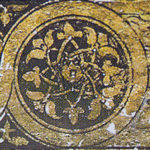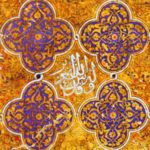 Beyond the Hot & Cold of this World (2/11/2024)
Beyond the Hot & Cold of this World (2/11/2024)
As Hodja is my witness,
I swear I will not make any vows again.
The glass of the vow is broken
as soon as I drink Love’s wine.
I swear to Your peerless beauty,
Your wine which defeats and ruins lions.
I won’t even get close to repentance.
I swear to Your sweet lips,
to Your heart which knows the secrets,
I am neither fond of this world
nor obliged to colors, to red and yellow.
I swear to Your sun-like face
and to the true value of Your words
that I am a thousand years
beyond the hot and cold of this world.
I swear to Your mind
which resembles a dark chestnut horse,
Your insignia which offers Soul,
that no one knows what kind of man I am
except You.
I swear to the blessedness of Your morning
and the uproar which comes after morning wine
that I will roll up the sky before I go.
O immortal Sultan, tell the cupbearer
that if someone comes to the assembly with a sour face,
he should serve him the sedimented wine of my sorrow.
That way, duality will disappear.
So will the difference between old and new.
Because at the sacred place of drinking,
I am separated from the crowd.
I am all by myself.
The cupbearer should offer so much wine
that that person becomes drunk, becomes a lover.
That way, he won’t be bothered
by either the echo of my voice or my cool reception.
When he becomes like that,
neither self nor envy will remain within him.
He will come to my playground pure and clean.
He will fly outside of time.
He will free himself from bait and trap.
He will turn himself into a witness
at this gambling place, without quarrel.
He will play with a clean heart like Venus.
He will submit himself to fate like dice,
saying neither, “I won,” nor “I lost.”
I will remain silent from now on.
I am neither nightingale nor parrot.
I am sugar.
I am a rose sapling.
Divan-i Kebir, Volume 22, Ghazal 24, verses 216-228, pages 51-53.








